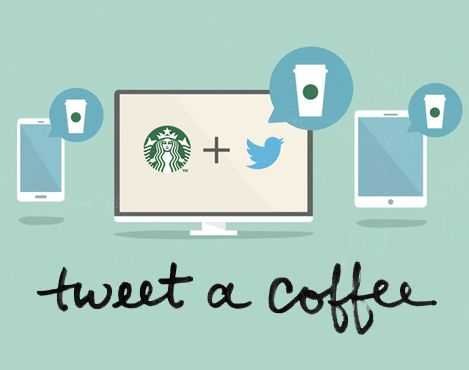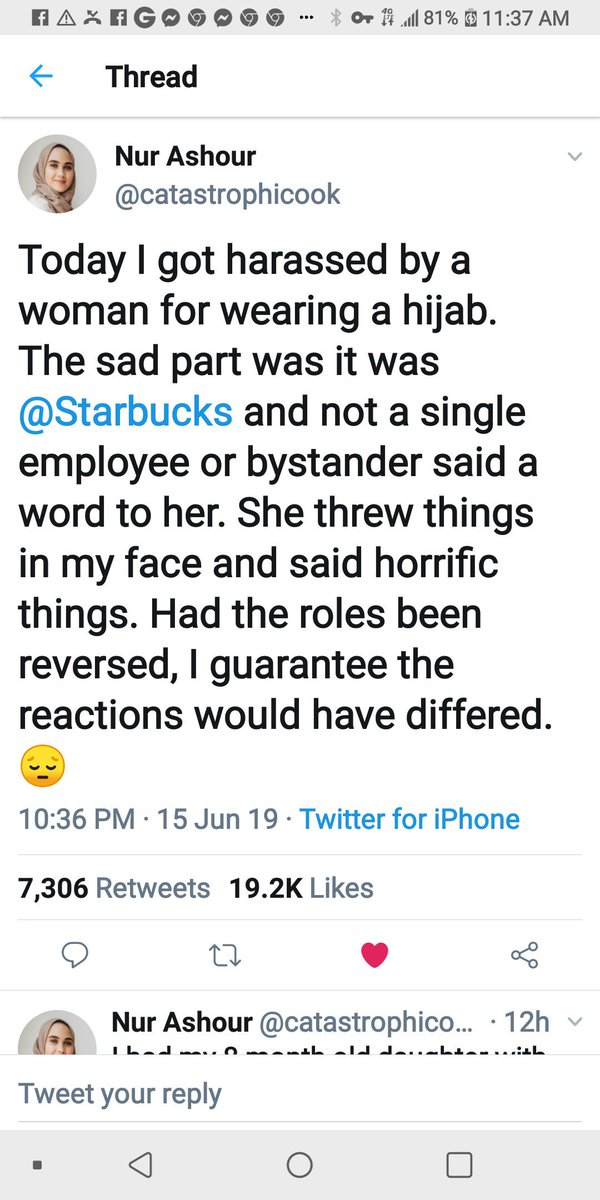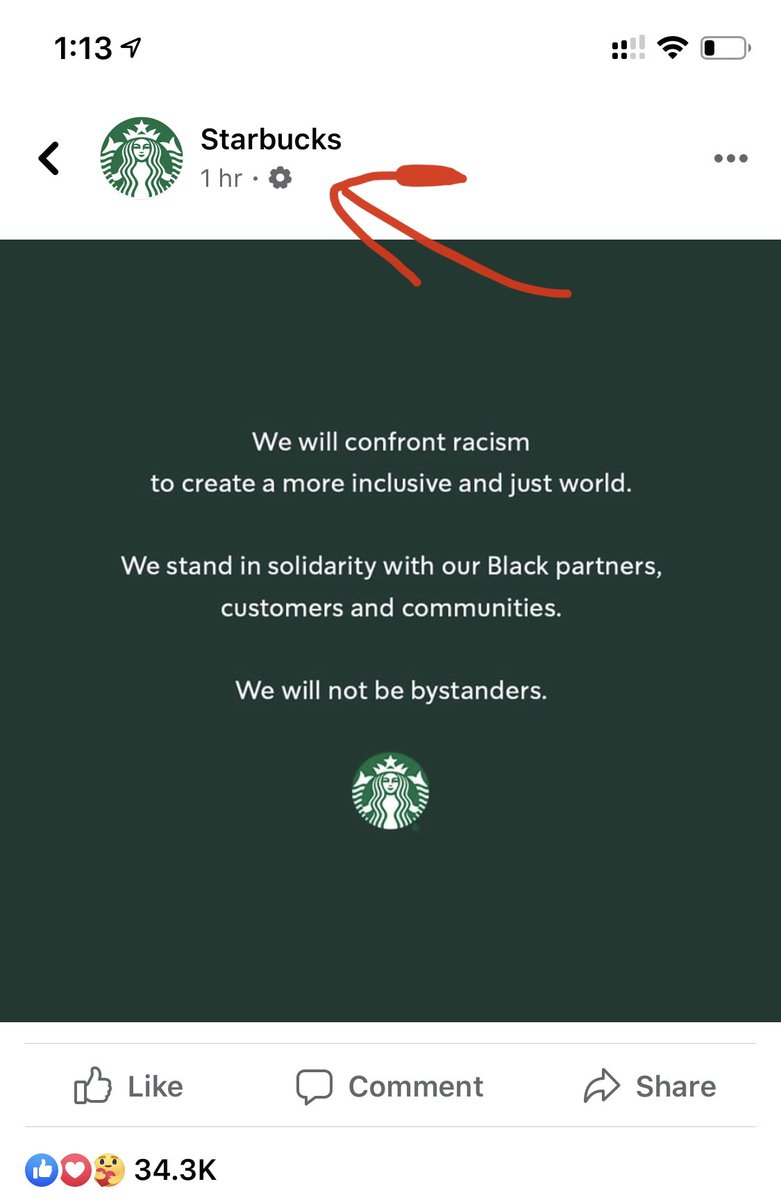The latest tweets from @StarbucksCanada.
A seemingly innocuous Starbucks Twitter campaign in the UK backfired on the coffee giant when critics used the #SpreadTheCheer hashtag to bash the brand.


- The latest tweets from @Starbucksuk.
- Starbucks is coming out with a Chestnut Praline Latte. Sounds less like a drink and more like a stripper giving her full name. 11:41 PM - 28 Oct 2014. Reply Retweet Favorite.
To compound the embarrassment, the tweets were displayed live at the Natural History Museum in London over the weekend. Starbucks has made headlines in the UK recently when it was disclosed that the company paid just £8.5 million ($13.8 million) in taxes in Britain, despite sales of £3 billion ($4.9 billion). Though many fans offered their heartfelt suggestions on how to spread cheer, others referenced the tax issue.
I like buying coffee that tastes nice from a shop that pays tax. So I avoid @starbucks#spreadthecheer
— Richard Leeming (@dickdotcom) December 17, 2012
RT @colmmulhern: #spreadthecheer#starbucks Tax dodging Coffee barons! Support your local cafe.
— Ali Sichilongo (@Ali_Star) December 18, 2012

I will never buy coffee from tax dodging Starbucks again personally. RT and #SpreadtheCheer

— Saggydaddy (@Saggydaddy) December 16, 2012
#Starbucks tax 'donations' paid for by screwing it's workers out of pay and benefits#spreadthecheer
— Native Bell (@SandiaElectrica) December 16, 2012
Why not #spreadthecheer by paying your taxes in full Starbucks? You leeching, parasitic scum.
— John Broggio (@JohnBroggio) December 16, 2012
Starbucks isn't the first to become a victim of a 'bashtagging' campaign. Earlier this year, McDonald's suffered the same fate as consumers used its #McDStories campaign as a launching pad for tales about bad experiences at the chain.
Reps from Starbucks could not be reached for comment on the campaign. The company has not addressed the issue in its Twitter feed.
Images courtesy of Twitter and iStockphoto, sndr
The Groundswell Effect Part I
Introduction
This article kicks off a three part series entitled The Groundswell Effect. This series is based upon the book Groundswell: Winning in a World Transformed By Social Technologies by Charlene Li and Josh Bernoff. While making my way through this book I walked away with three important concepts, each one will be addressed in a separate article:
1. The whole is greater than the sum of it’s parts
2. A brand is dictated by customers not by an individual or company
3. Relationships are key
Part I will address what exactly a groundswell is, identify the changing rules of the game that we each take part in, and in doing so reinforce the first concept of the whole being greater than the sum of it’s parts.
What is a Groundswell?
Groundswell was a term originally coined by Forrester Research in a 2006 report titled Social Computing: How Networks Erode Institutional Power, And What To Do About It. According to the Groundswell authors “the groundswell is a social trend in which people use technologies to get the things they need from each other instead of from companies.” Simply put, in the past if I had a question concerning the quality or usefulness of a particular product or service I would go to the company offering said product or service. Most recently though, if I had these same questions I would go online and read things such as blogs, customer reviews, discussion boards, wikis, etc. and not even go to the company. The groundswell is the gathering of individuals and their interactions in these online communities which is essentially the Internet as we understand it.
The Rules Are Changing
This new dynamic is essentially changing the rules by which the free market game is played. In the past a company controlled communications regarding a product or service by being selective or limiting the amount of information released to the public about said product or service. The concept of the groundswell shifts the power away from the manufacturer or service provider to the user community. Manufacturers and service providers are realizing this is occurring whether they like it or not and are attempting to adapt by participating in the groundswell and as a result have a stake in shaping the communities perception of their product or service.
The Whole Is Greater Than The Sum Of It’s Individual Parts
As a result of my engineering background I have known this concept to be true for years but mainly in a high technology system context. Consider your car, although the individual parts such as the brakes, engine, onboard computer, etc. may be complex, powerful, and add value it their own right, it isn’t until they are combined into a complete functioning vehicle that their true power and value is unleashed. The whole vehicle is much greater than the sum of its individual parts.
Now consider this concept in a marketing and crowd behavior sense, which is the context of groundswells. Simply stated, an immediate assumption is that one person + one person = two people or 1 + 1 = 2. However two people working together is a much more powerful force than the two people working in isolation as individuals. Interestingly enough, the more people you add to the mix the more powerful the effect becomes – this is the essence of the whole being greater than the sum of it’s individual parts. Anyone who has ever worked in both an individual and a partnership situation knows this to be true.
Starbucks Twitter Apology
Personal Reflection
In my experience I have found what the authors are saying to be true. Word of mouth is generally the biggest item to convince me to try something, especially when it comes from a friend or group with similar tastes. The web makes retrieving this information extremely easy, nearly instantaneous. As mentioned in my Consistency and Exclusivity post I tend to gravitate towards certain brands and stick with them over time.
Pockets of information form around these brands through groupings of user communities, this is certainly the case with brands such as Apple. If I am to purchase a brand, product, or service that I am unfamiliar with I almost always check online to find quality information about the expected purchase which is generally at my fingertips. Personally, the only meaningful contact I have with a company is at the point of sale where my opinion has already been formed through groundswelling. Another example is Starbucks, where this company actually formed it’s own individual Facebook and Twitter to tap into the power of the groundswell. For your convenience I have provided links both the Starbucks Facebook Page and the Starbucks Twitter Page as examples. For more on the role of Social Media in business development refer to my past articles titled Social Media Parts I, II, and III.
From a personal context consider the effect this has on your purchasing decisions. Personally, it is true that I am interested in nice ads and marketing campaigns that attract my attention based upon my interests. However, I am much more interested in online user reviews as opposed to industry experts and critics and most interested in friends and colleagues with similar taste. To finalize this point consider the impact an opinion a friend with similar taste and interests has on your decision making, now take it to the next level and consider the impact an online user community demonstrating trends concerning a product or service prior to your purchase and you will understand the power of the groundswell.
To Be Continued…
In Part II I will discuss why a brand is dictated by the groundswell and not the company offering the product or service.
The power of the collective groundswell is much higher than that of an individual!
–John R. Sedivy of Cape Cod Branding
Starbucks Twitter Bio
December 29, 2008 at 7:00 pm3 comments




